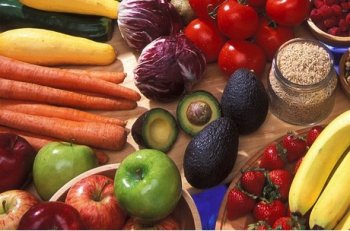
Even though specialty crops consist of some of the healthiest foods for us to eat, they are often left out in the cold when it comes to attention from government programs. Thankfully, as demand for fresh, local foods has increased, so too has support for and funding of programmes for specialty crops.
On 9 March, the United States Department of Agriculture (USDA) Agricultural Marketing Service’s (AMS) announced the availability of over USD $62 million in funding for the Specialty Crop Block Grant Program (SCBGP) in fiscal year 2016. AMS also announced that USD $26 million in funding would be made available for the Farmers Market and Local Food Promotion Program (FMLFPP).
SCBGP provides grants on an annual basis to assist state departments of agriculture in enhancing the competitiveness of specialty crops. To receive grants, states must submit an application to AMS outlining how the grant funds would be spent.
States regularly partner with nonprofit organizations, producer groups, and colleges and universities to develop their applications and administer their programs. SCBGP funding is allocated to U.S. States and territories each year based on a formula that considers both specialty crop acreage and production value.
States can use the block grants to supplement state-run specialty crop programs. They can also use them for projects that enhance the competitiveness of specialty crops, such as locally grown fruits and vegetables, through research and programs designed to increase demand. SCBGP funds can support a wide array of projects including: value-added processing businesses, food hub development, farmer food safety training, and farm to school initiatives.
State departments of agriculture must submit their applications to AMS by 6 July 2016.
USDA encourages states to submit projects related to the following priority areas:
- Benefitting underserved communities and veterans;
- Improving producer capacity to comply with the requirements of the Food Safety Modernization Act (FSMA);
- Developing adaptation and mitigation strategies for farmers in drought-stricken regions of the country;
- Increasing opportunities for new and beginning farmers;
- Developing strong local and regional food systems;
- Protecting pollinator habitats and improving pollinator health;
- Supporting the growth of organic specialty crops.
Improving Producer Capacity to Comply with FSMA
One priority area that is particularly timely given the Food and Drug Administration’s (FDA) recent changes to FSMA rules, are those projects that improve specialty crop producers’ capacity to comply with the new requirements – specifically with the new FSMA Produce Rule.
NSAC encourages prospective applicants to seriously consider projects from this priority area. Complying with food safety rules is critical to the ability of small and mid sized farmers to be successful, and in order to comply many farmers will need access to FSMA education and training programmes.
Under the FSMA priority area, USDA is encouraging projects that enhance food safety broadly and improve the capacity of all entities in the specialty crop distribution chain to comply with FSMA requirements. According to the USDA, preferred projects would develop ‘good agricultural practices, good handling practices, good manufacturing practices’. In the case of cost-share arrangements, preferred projects would fund audits of such systems for small farmers, packers and processors.
Organisations interested in applying for SCBGP funds should do so directly through their state department of agriculture. A listing of state contacts and how to apply with state application due dates, can be found here.
For more information, visit: sustainableagriculture.net



 Classifieds
Classifieds

